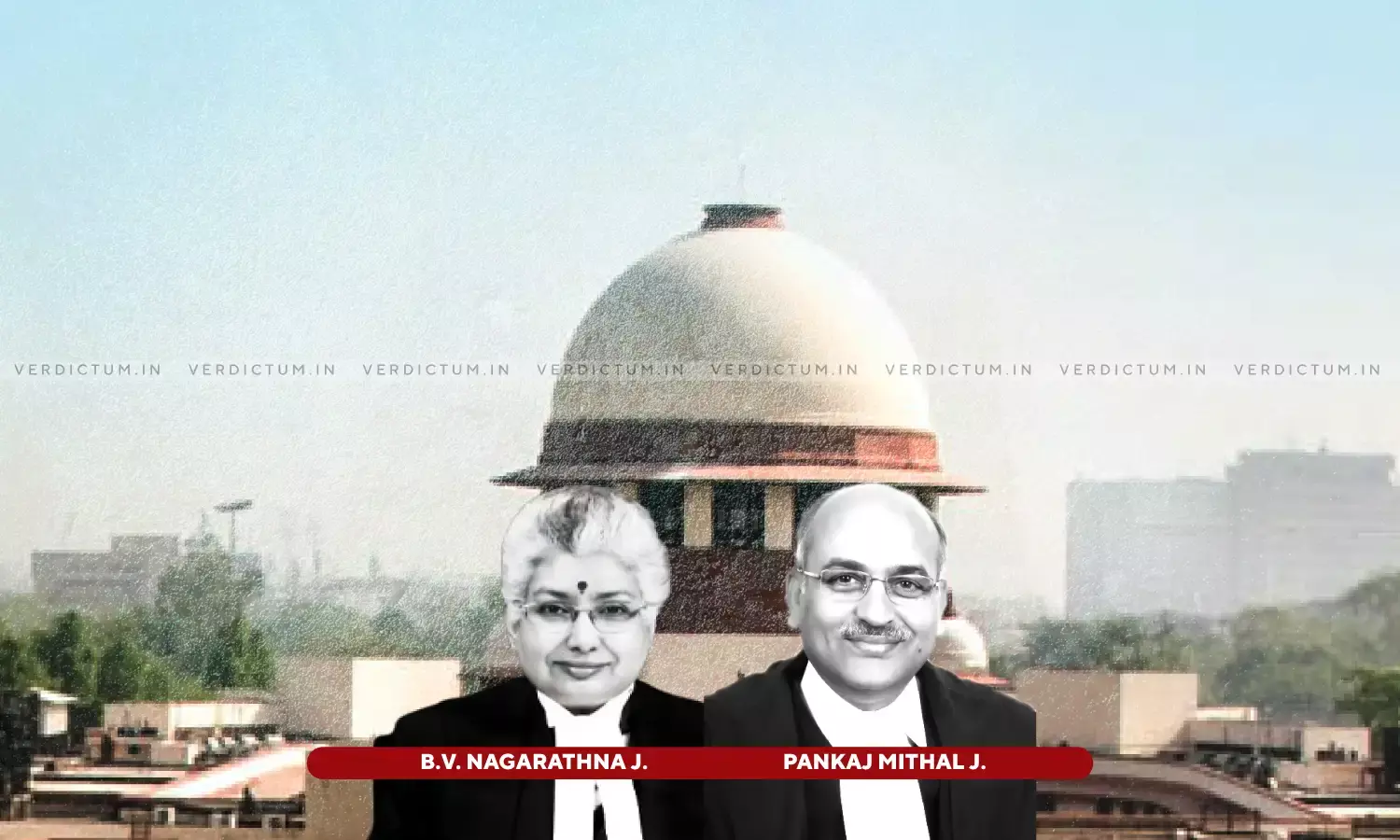Concerned With Unlicensed Arms Menace, Supreme Court Orders States To File Action Plan
The Supreme Court, concerned with the menace of unlicensed arms and ammunition, has ordered the constitution of a committee headed by the Chief Secretary in each state and Union Territory to formulate an action plan for the implementation of the Arms Act and Rules.
In its Order, the Court notes that despite the existence of laws and rules, there is a proliferation of factories and workshops manufacturing unlicensed arms and ammunition and the use of such weapons to commit crimes is on the rise.
A two-Judge Bench of Justice B.V. Nagarathna and Justice Pankaj Mithal said, “Apart from local production, smuggling of arms and ammunition used for crime against society and the State is another matter of concern. We find that there is a lackadaisical approach in the implementation of the existing provisions of the Act and the Rules.”
Senior Advocate S. Nagamuthu appeared as amicus curiae in the matter.
The committees constituted in pursuance of the Court’s Order will submit an action plan for the implementation of the Arms Act and Rules, inspect and audit the existing licensed and unlicensed factories dealing with arms and ammunition, secure data regarding manufacturing, sale and transportation of illegal arms and ammunition and list the steps taken in this respect. The Court also ordered the undertaking of a study on the use of illegal arms and ammunition in crime against society and against the State and steps for its prevention. The committee will be free to consider any other related aspect. The action plan is to be submitted to the Court within ten weeks.
The five-member committee constituted will be headed by the Chief Secretary and will have as members the Home Secretary, Director General or Inspector General of Police, the Law Secretary and one expert in the field of ballistics nominated by the Chief Secretary.
The Court passed these directions while hearing a Miscellaneous Application in a Special Leave Petition (SLP). In February 2023, the Court, while hearing an SLP filed by one Rajendra Singh took suo motu cognisance on the menace of the unlicensed firearms. In that case, the Court noticed that an unlicensed firearm was used to commit a murder. In its Order, the Court noted that preserving lives “is of the greatest significance” and if unlicensed firearms are used, “this will sound the death knell of (the) rule of law.” The Court ordered the Union Government to file an affidavit with details on the number of cases registered for the possession and use of unlicensed firearms and the steps taken by the government to address the issue.
In April 2023, while issuing notice to the Union Government, the states and the Union Territories, the Court remarked that the phenomenon of such firearms “appears to be very common as can be seen when the Court hears through criminal cases. It has very serious consequences both in terms of the right to life as also the administration of justice.” In that Order, the Court specified that responses shall be put in by the concerned Director General of Police in the form of affidavits indicating the statistics and the steps taken to deal with the problem of unlicensed firearms.
The Union Government in its affidavit stated that the Arms Act and the Arms Rules, 2016 contain provisions to “curb illegal weapons and violence” and that the Arms Act was “suitably amended” by enhancing punishments and expanding definitions of some expressions.
The affidavit states that the National Investigation Agency is “taking active investigation and action against illegal arms” but adds that police and public are state subjects and hence, the primary responsibility to enforce regulatory provisions is of the states and Union Territories. The Union Government also noted that data from the National Crime Records Bureau show an increasing trend in use of illegal arms and ammunition.
Nagamuthu, appearing as amicus curiae, told the Court that in places with free flow of illegal arms and ammunition, people live under constant fear and that the crimes involving such arms is on the rise. He submitted that statistics reveal that crimes committed with unlicensed weapons are “phenomenally on increase and it is slowly slipping out of control.” The Court said it is this grave concern which impelled it to initiate suo motu proceedings. The amicus divided arms and ammunition into four broad categories:
1)Those manufactured under due licenses and possessed by the civilian licensees for specified purposes such as self-protection, that are regulated by the Arms Act, Explosives Act, and Explosive Substances Act.
2) Those kept under licenses, but used for illegal purposes, such as commission of crimes in violation of the above regulatory laws.
3) Those smuggled into India and held in the hands of anti-social elements and some extremist groups in total violation of any law.
4) Those domestically manufactured without any license or authority whatsoever and being in the hands of the anti-social elements, extremist groups, and even common men.
The Amicus said laws relating to the first and the second categories should be made more effective and stringent so that the licensed arms and ammunition are not used for the commission of anti-social activities or crimes. Regarding the third and fourth categories, it was stated that they possess the real potential threat to the peace and security of the people and should be totally eradicated.
The Court expressed expectation that the committees constituted in pursuance of its Order will place their action plans at the earliest and listed the matter for further hearing on January 30, 2025
Cause Title: Rajendra Singh v. The State Of Uttar Pradesh [Miscellaneous Application No. 393/2023 in SLP(Crl) No. 12831/2022]
Click here to read/download the Order



